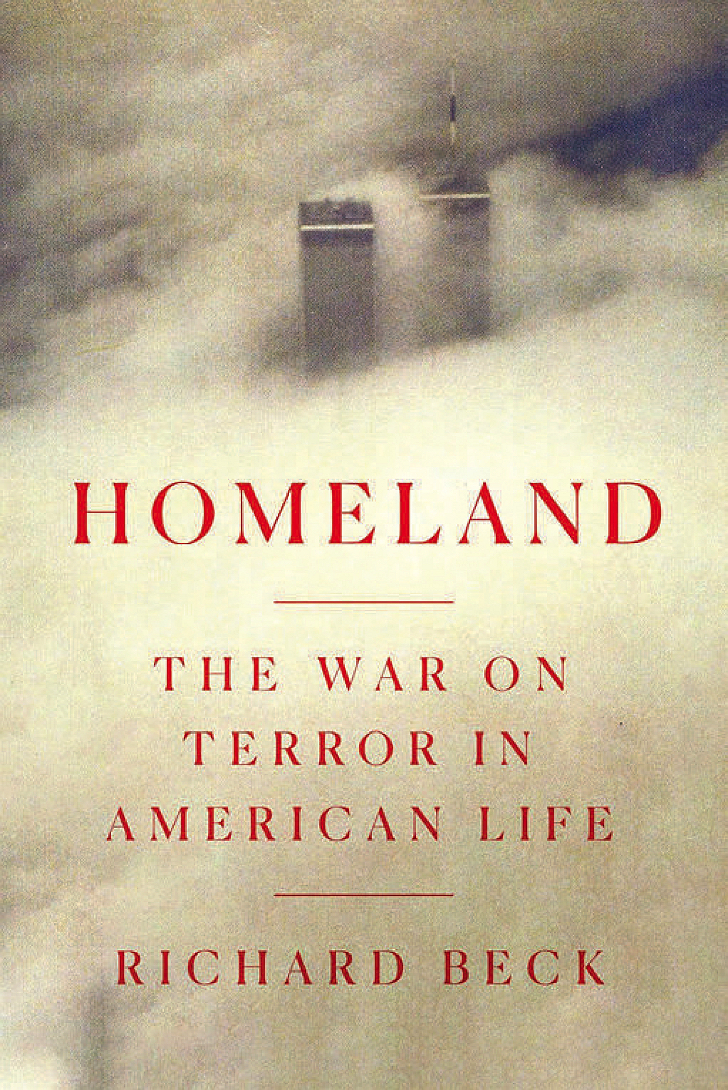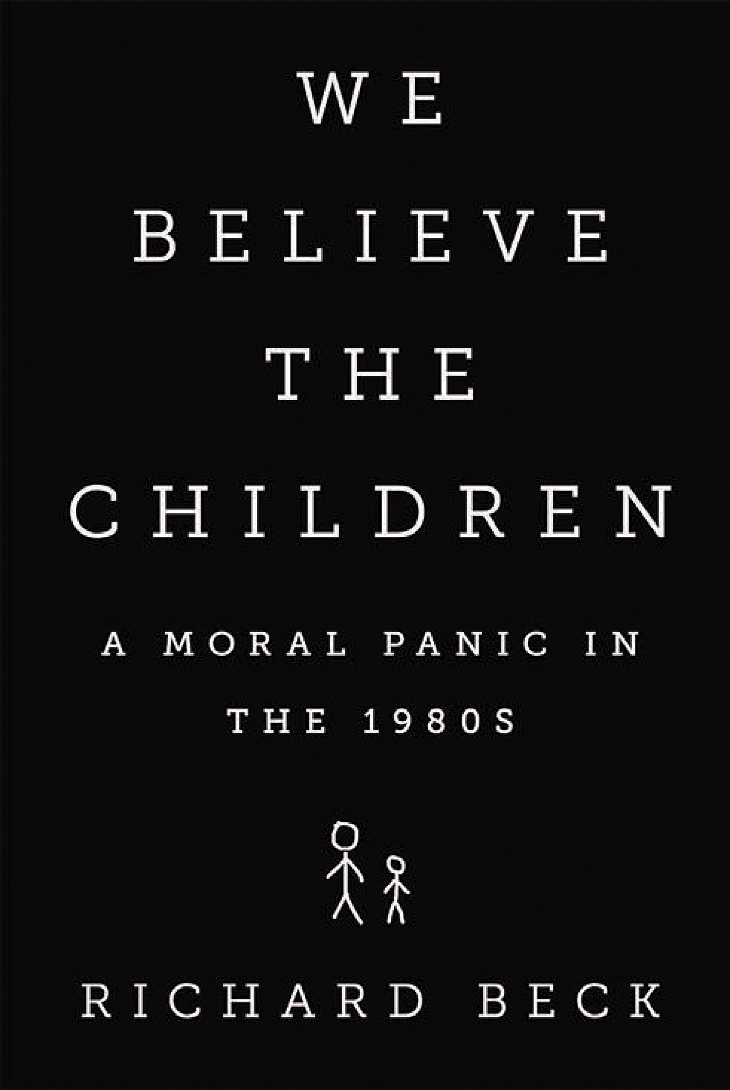September 11, 2001, split Richard Beck’s adolescence in two. Fourteen on the day of the attacks, he was old enough to remember life before—when anyone could walk up to an airport gate, when students learned in school that history was over. He came of age in their aftermath, as the United States became entangled in wars in the Middle East, and militarism shaped other aspects of American life—airport security, popular movies—more subtly. Witnessing the country’s transformation, Beck ’09 writes in his new book Homeland: The War on Terror in American Life, he realized that “history is something you have to try to understand even as you live through it.”

That attempt to understand didn’t begin right away. Beck grew up in a Philadelphia suburb as a “mainstream liberal Democrat,” and during high school, was more concerned with music than politics. He sang and practiced instruments, thinking he might try to go to conservatory for classical piano. When he realized he “wasn’t good enough,” he turned to writing about music and other cultural works. At Harvard, he reviewed music and theater for the Crimson. His junior year, he wrote an essay for the Advocate about a favorite band from high school, Neutral Milk Hotel, “and the process of leaving behind the first music you fall in love with,” he says. That piece made him sure that he wanted to be a writer.
Beck was content to focus his writing largely on culture—until some editors from a small, newish magazine called n+1 visited the Crimson. N+1 had been launched in 2004 by six young writers and editors, four of them Harvard alumni (“Intellectual Entrepreneurs,” January-February 2010). The existing media landscape, they felt, was at once hopelessly fractured—literary magazines didn’t engage with politics; political outlets didn’t engage with culture—and disturbingly unified: many publications, including left-leaning ones, mounted no real criticism of the U.S.’s 2003 invasion of Iraq. N+1 sought to examine culture, politics, and how they interacted—while challenging all political orthodoxies.
After the event at the Crimson, Beck took some n+1 issues home to read. “Knowing that you could move to New York and write like that—that was a big, like, ‘That’s what I want to do,’” he says. “Up until then, I’d had the standard ambition of, ‘Maybe I can be a New Yorker writer.’ And then I got to New York and I realized that’s not actually an ambition of mine. That’s not how I want to write.”
After graduation, Beck moved to New York, where he still lives, and began contributing to n+1. He joined the masthead as an assistant editor in 2012, before becoming a senior writer—his current role—a few years after that. (“I was really bad at [editing],” he says. “After a few years, I said, ‘Can we please be real? Just make me a writer on the masthead. That’s what I actually do.’”)

In 2011, Beck participated in a research project organized by n+1 on the history of second-wave radical feminism. Through this research, he learned about the child-abuse panics of the 1980s, when teachers, aides, and day care workers across the nation were falsely accused of horrifying abuse. His first book—We Believe the Children, published in 2015—blends history and psychology, arguing that the panics were a backlash against feminist progress of the 1970s: the genesis of today’s culture wars.
Most of the events covered in that book took place before Beck was born. As he was writing it, however, he was also thinking about contemporary politics. Beck graduated during President Barack Obama’s first year in office, when many were still optimistic that he would end the War on Terror, as he had promised. “Watching [Obama] not dismantle this war that I’d been told was purely a right-wing, neoconservative, Republican project,” Beck says, “is when I started trying to figure out: ‘What is this political miseducation I got? How am I supposed to understand what this war is for?’”
He started to answer those questions by thinking about culture. In 2012, he wrote an n+1 review of the popular TV series Homeland. The show follows CIA officer Carrie Mathison as she attempts to expose former U.S. Marine-turned-terrorist Nicholas Brody. On its face, Homeland was a repudiation of the backwards, brutish tactics of the Bush-era War on Terror: characters reject torture and Islamophobia; the terrorist Mathison pursues is white, not Arab. In his review, Beck argued that these features were simply cosmetic updates that allowed liberals to repackage the same ideas that drove the war under George W. Bush.
In his new book, Beck expands his thinking about culture and politics. Analyzing Christopher Nolan’s Batman trilogy, he explains why cultural works—even those that seem far afield from politics—merit political examination. Nolan isn’t seeking to express a coherent political vision. Instead, “He is like a weather station, picking up on things in the atmosphere—stories in the news, images that stick in people’s minds…and then using hundreds of millions of dollars to put them into movies.” That reflection of Americans’ psyches is political. Batman is a vigilante who must break the law to preserve order in Gotham: a soothing narrative, Beck argues, for citizens of a country that had invaded Iraq in a move condemned by much of the world.
Once Beck identified the superficial differences that obscured fundamental similarities between the Bush and Obama administrations’ foreign policies, the next step was to understand what motivated both presidents to pursue the war. To answer that question, Beck turned to economics. In the broadest, most ambitious section of the book, he analyzes the financial rationale behind the War on Terror. “Something about America’s superpower status had changed by the beginning of the twenty-first century,” he writes: the slowing growth rate starting in the 1970s.
Before, the U.S.-led world order, while not beneficial for all, at least guaranteed economic stability for many countries. But as economic growth slowed, Beck argues, America could no longer claim its supremacy benefited much of the world, and the globe’s “surplus population”—the technical term for people who are not formally employed—grew. To maintain its dominance, even as the economic foundations of that dominance eroded, the United States turned to a “militarized relationship with the rest of the world,” Beck says—and to suppress the political discontent that slowing growth fostered, global leaders became increasingly authoritarian. In his view, this narrowing of economic opportunity drove terrorism: “Just because it is neither politically constructive nor morally justifiable does not render terrorism incomprehensible,” he writes. “It is a demand that all of this be made to stop.”
For Beck, perhaps the most insidious effect of the War on Terror, its longest tail, is how it degraded the notion of American citizenship. Citizenship, he argues, comprises not just the ability to vote, but also the rights to engage in political discourse, to assemble, and to demonstrate. All became increasingly difficult after 9/11, when a “conformist cultural climate” took hold of the media. Perhaps that conformity was inevitable in the immediate wake of the attacks—but it didn’t let up in the years after, as when the mainstream media failed to scrutinize the government’s decision to go to war in Iraq. Instances like this, Beck argues, show how citizenship became hollowed out, as Americans lost the ability to debate and influence government policy.
That inability to sway political outcomes continues to shape foreign policy today, Beck maintains. “The most important political story of the last few decades isn’t this narrative that gets rehashed about increasing polarization,” he says. “Instead, it’s a continued unity between the Democratic and Republican parties when it comes to foreign policy.” Though they may disagree on details, both parties have fundamentally similar positions on China and Israel-Palestine, he says. And while Republican skepticism of continued support for Ukraine may seem to challenge that unity, Beck argues that this position is a superficial one. Republicans, he writes, “would be more or less content to see Russia come out of the war with some extra territory, but that position is not the product of any principled antimilitarism”—an antimilitarism that would balance funding Ukraine’s self-defense with pursuing diplomacy, while considering the geopolitical roots of the war.
Beck isn’t optimistic about the contemporary political system’s ability to reflect the will of its citizens. But perhaps little magazines can provide a forum to begin to imagine alternatives. N+1, Beck says, has allowed him to think beyond the bounds of mainstream media discourse—and outside the lines of academic disciplines. He has been able to do so in the way his College self wanted since reading n+1 for the first time: in a writing style rarely found in major publications, one that is irreverent, provocative, and—even when dealing with the grimmest of affairs—funny. And despite his pessimism, the premise of his book gestures toward hope: that excavating and interrogating this history can clarify the present and how citizens might change it. “I think what I hope my book can do,” Beck says, “is give people a framework for figuring out how to think about politics, living under a government that’s so uninterested in being responsive to democratic input.”









